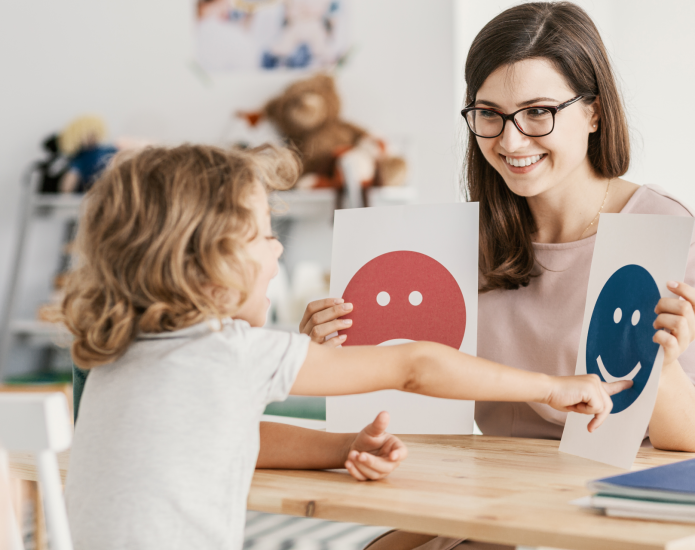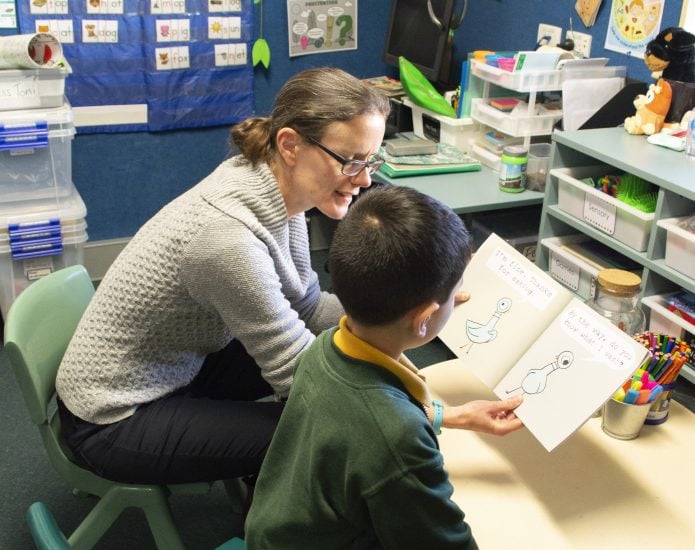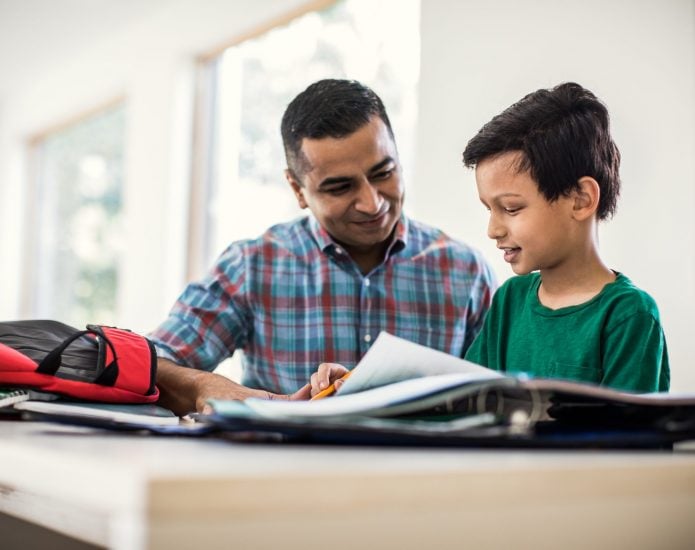Generalised Anxiety Disorder is an excessive and irrational worry about everyday situations and events and activities like school, making friends, performance in sports, health or world events. Children with Generalised Anxiety Disorder often experience lack of confidence and self esteem and may seek frequent reassurance.
Anxiety is a normal part of a child’s development. It is our body’s way of preparing us for unfamiliar and potentially dangerous experiences. As children grow, they are often faced with new situations and experiences that can cause feelings of fear and anxiousness. For younger children, this could be meeting new people or starting school, while for older children and teens, this could be sitting an exam at school, speaking in public or entering a sports race. In these situations, anxiety can help children be more alert and focused.
However, in some cases, anxiety can be difficult to control and start interfering with a child’s ability to participate in daily tasks. If your child is experiencing anxiety more significantly than others their age, they may need additional support or be showing signs of an anxiety disorder.
What are Anxiety Disorders?
Anxiety disorders may be diagnosed when a child’s feeling of anxiousness is considered more excessive, persistent or irrational than what is considered normal for their age and situation. They often present with persistent psychological, physical and behavioural changes that interfere with a child’s ability to perform daily tasks.
Some of the most common anxiety disorders experienced by children include:
Generalised Anxiety Disorder
Social Anxiety Disorder
Social Anxiety Disorder, or social phobia, is an intense and persistent fear of being judged in social situations. Children who experience social anxiety may feel self-conscious and have difficulty making friends, speaking up in class and performing in front of others.
Separation Anxiety Disorder
Separation Anxiety Disorder is an intense worry or distress caused by being away from their parent or caregiver. In older children, this can also be a fear of something bad happening to a loved one while they are away. Children with Separation Anxiety may refuse to leave the house or stay at school without their parent or caregiver. Feelings of anxiety caused by separation is normal for children under two years of age where this is a new experience for them.
Panic Disorder
Panic Disorder is a condition where a child experiences frequent and unexplained panic attacks and constant fear over the occurrence of another attack. Panic attacks are a sudden onset of intense physical symptoms of anxiety such as a racing heart, difficulty breathing and shaking.
Signs of Anxiety in Children
There are a number of signs and symptoms that could indicate your child may be struggling with feelings of anxiety. These may vary depending on the type of anxiety they are experiencing and not all are obvious.
Children with anxiety may experience a combination of psychological, physical and behavioural symptoms.
Signs may include:
- rapid heart rate and breathing
- restlessness and irritability
- difficulty concentrating
- mind going blank
- persistent worry
- trouble sleeping
- changes in appetite
- shaking and dizziness
- stomach pain or vomiting
- headaches and muscle pains
- avoidance of places and activities
Diagnosis and Treatment
There is no one test that can determine whether a child has anxiety. If your child is showing signs of anxiety, an important first step is visiting a GP or paediatrician to rule out any other medical conditions.
Speaking with a psychologist can also help your child understand their feelings of anxiety and provide them with coping strategies to help them manage their anxiety.
Helping Children with Anxiety
Whether your child has a diagnosis or not, there are lots of simple ways to support them with their anxiety.
- Ask your child about their feelings e.g. ‘You seem to be worried a lot lately, I am concerned’
- Encourage them to talk to others they trust like a friend, teacher or school counsellor
- Find activities that help your child to relax such as listening to music or drawing
- Practice breathing and mindfulness exercises
- Encourage, but don’t force, your child to do the things that make them feel anxious
- Provide opportunities for positive socialisation and reinforcement
- Organise a referral to a psychologist
- Encourage your child to contact services such as Kids Help Line
Financial Assistance for Children with Anxiety
Children with anxiety may be eligible to receive Medicare rebates for up to 10 sessions with a mental health professional through the Better Access to Mental Health Care initiative.
A mental health care plan from your GP or referral from a psychiatrist or paediatrician is required if seeking to claim Medicare rebates through the Better Access to Mental Health Care program.
Learning Links Can Help
Learning Links has services and resources to empower children to build the strategies to cope with anxiety.



